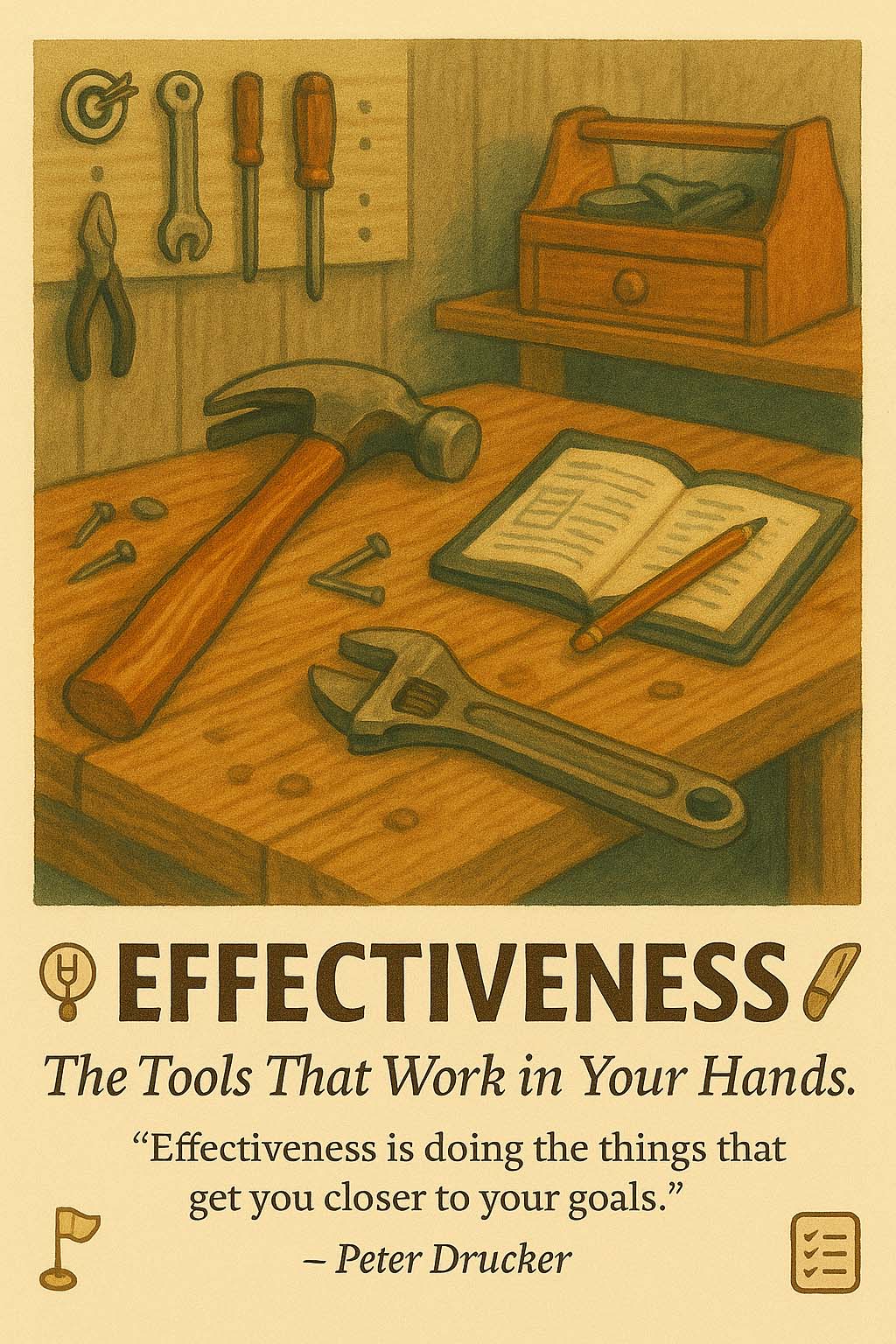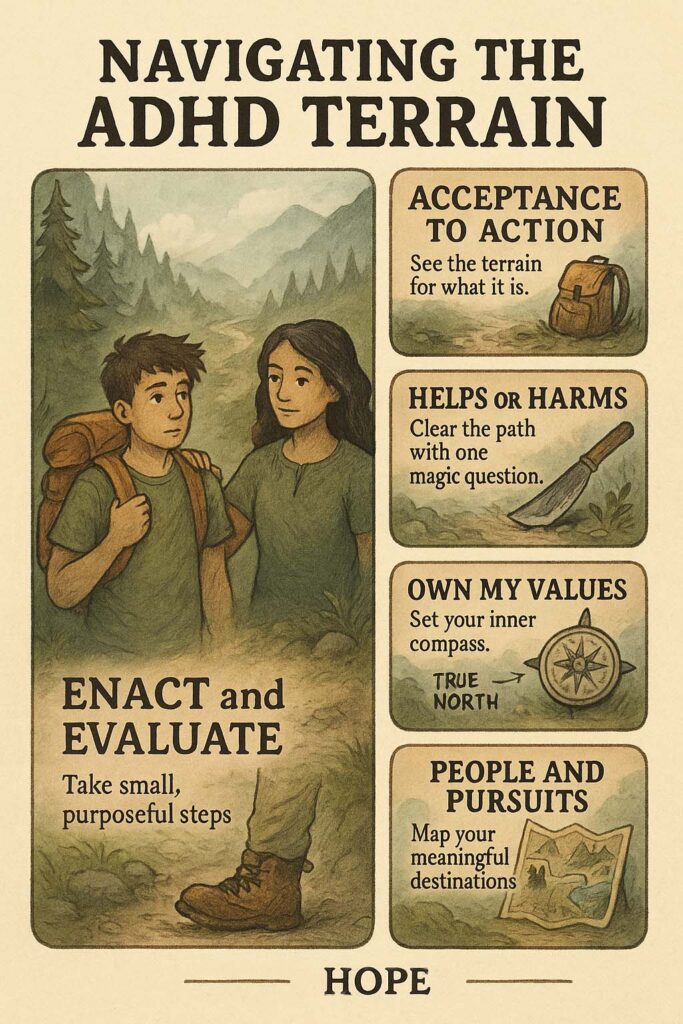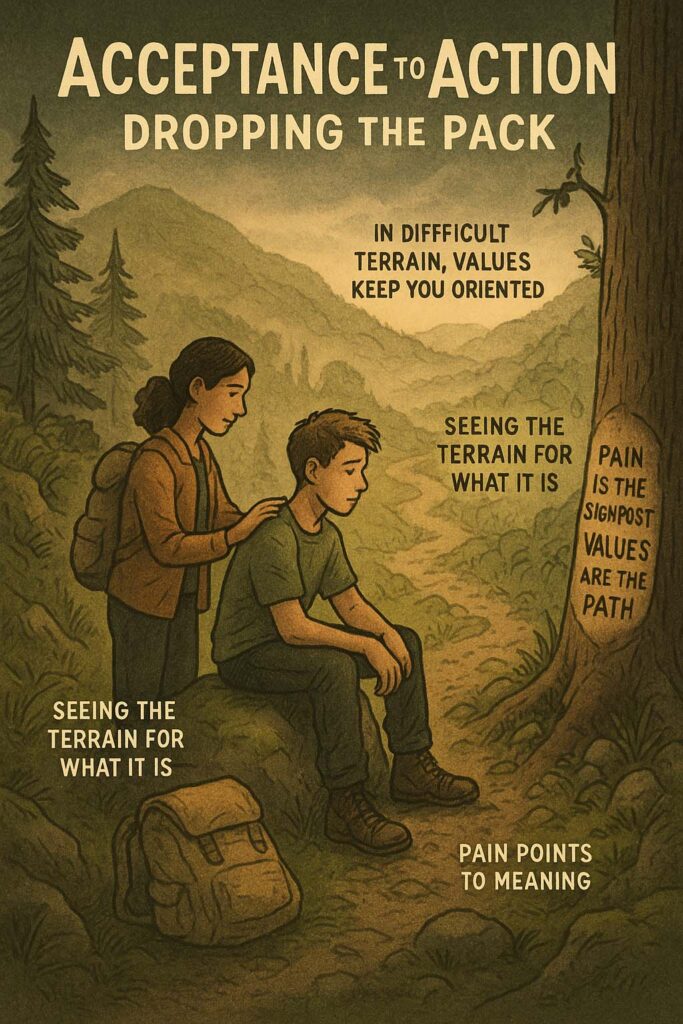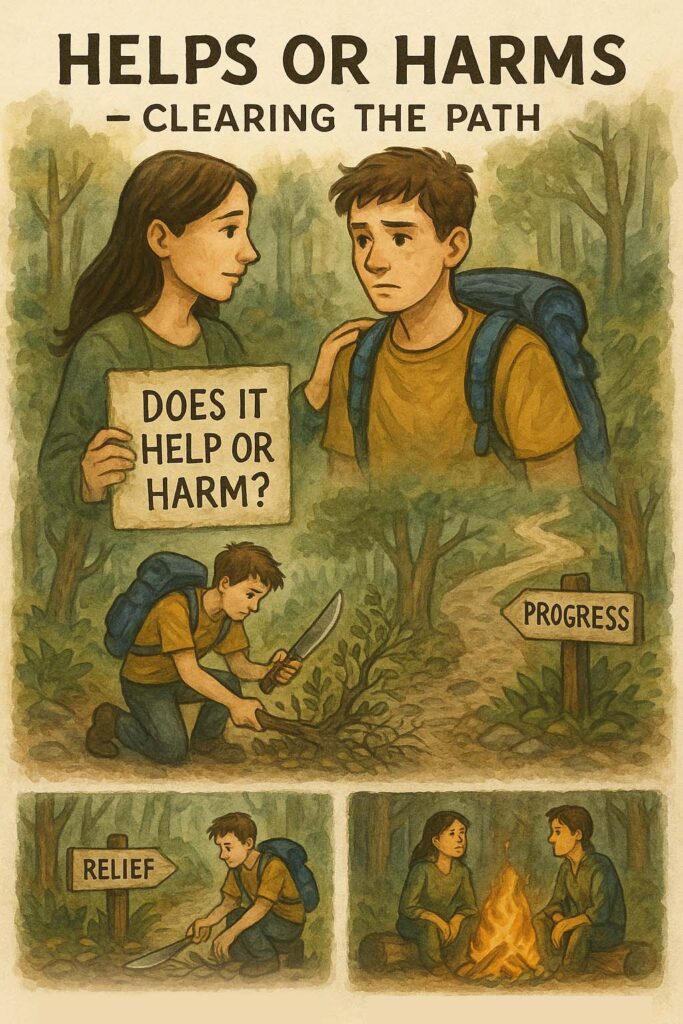
🎯 EFFECTIVENESS
“Effectiveness is doing the things that get you closer to your goals.” – Peter Drucker
Effectiveness is not about doing everything. It’s about doing what works. In the ADHD terrain—where energy fluctuates, motivation is unreliable, and the brain often resists structure—effectiveness becomes a quiet superpower. It’s less about doing things “the right way” and more about doing things your way, in service of what matters.
We’re often judged on efficiency, but that metric doesn’t always serve us. It rewards speed, uniformity, and standardization—things that many ADHDers struggle with. But effectiveness asks a different question: “Does this move me closer to my purpose?” It honors creativity, unconventional methods, and neurodivergent brilliance.
Being effective with ADHD might mean working in short sprints, talking out loud to think, or solving problems intuitively instead of linearly. It might mean ignoring what looks productive and focusing on what’s actually meaningful. The key is not comparing your process—it’s owning it.
This value invites pride, not shame. When you stop chasing how others do it and start cultivating systems that suit you, you unlock a whole new kind of power: one rooted in intention, not imitation.
🧭 The HOPE Trail Map
- Helps or Harms: Is this strategy actually helping me—or just making me feel like I “should” be better?
- Own My Values: I want to be someone who creates outcomes that matter, using tools that work for me.
- People and Pursuits: Who values my effectiveness, even when it looks different? What goals do I pursue more easily when I trust my own way?
- Enact and Evaluate: Today, I’ll choose one task and ask: “What’s the most effective, not impressive, way to do this?”
⚠️ Trail Challenges
- External judgment may push us to prioritize appearance over real progress.
- ADHD can lead to “doing everything” without clarity on what really matters.
- Executive dysfunction makes it hard to assess outcomes realistically.
🪧 Trail Markers: Small Steps Toward Effectiveness
- Identify your “ADHD-effective” tools—voice notes, body-doubling, timers, etc.—and use one today.
- Finish something halfway if that’s all you need—it’s still progress.
- Ask: “What do I need to make this doable, not ideal?”
🔥 Campfire Questions for Reflection
- What has been surprisingly effective for me, even if it’s unconventional?
- Where am I chasing productivity at the cost of real progress?
- What’s one thing I could do more effectively if I dropped the pressure to do it “right”?
Effectiveness is what gets you up the mountain—not the flashiest gear, but the tool you’ll actually use, again and again, because it fits your hand.



